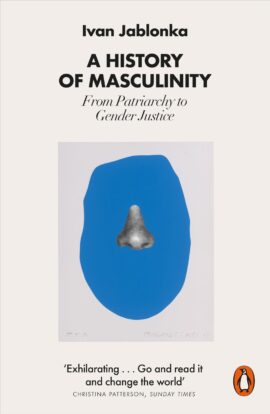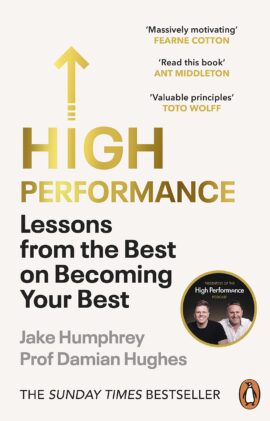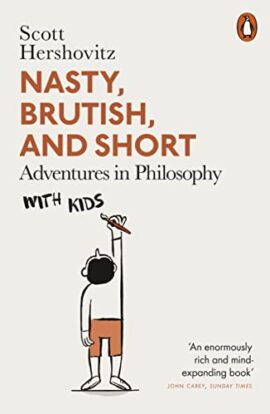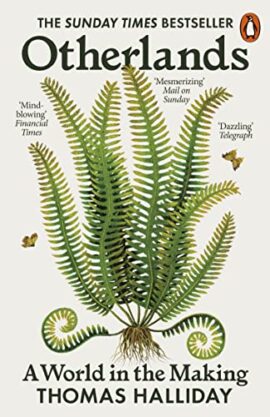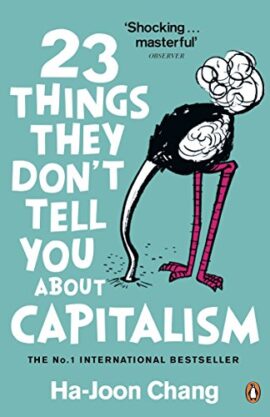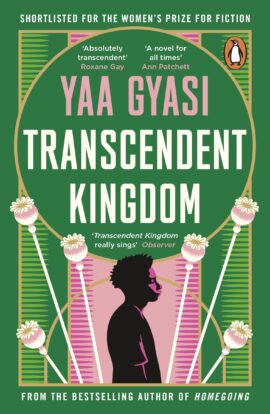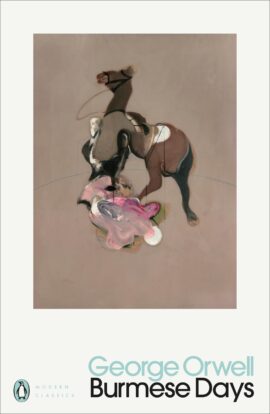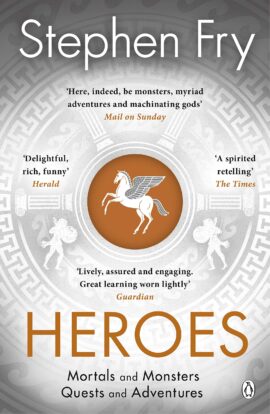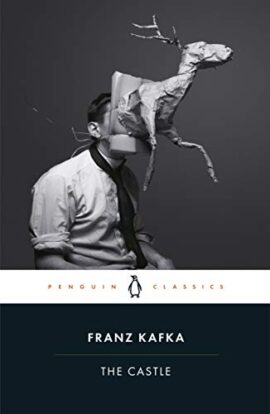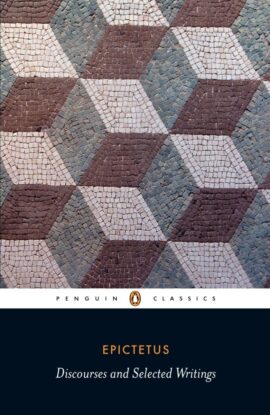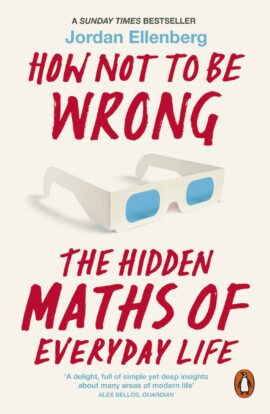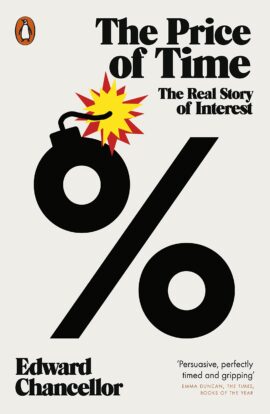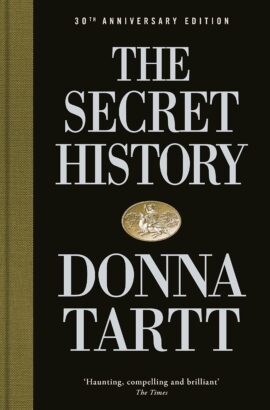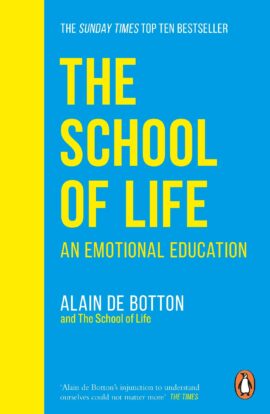Affichage de 701–725 sur 1220 résultatsTrié par popularité
Go Tell It on the Mountain (Penguin Modern Classics)
Go Tell It On The Mountain, first published in 1953, is Baldwin's first major work, a semi-autobiographical novel that has established itself as an American classic. With lyrical precision, psychological directness, resonating symbolic power, and a rage that is at once unrelenting and compassionate, Baldwin chronicles a fourteen-year-old boy's discovery of the terms of his identity as the stepson of the minister of a storefront Pentecostal church in Harlem one Saturday in March of 1935. Baldwin's rendering of his protagonist's spiritual, sexual, and moral struggle of self-invention opened new possibilities in the American language and in the way Americans understand themselves.
A History of Masculinity: From Patriarchy to Gender Justice
A highly acclaimed work from one of France's pre-eminent historiansWhat does it mean to be a good man? To be a good father, or a good partner? A good brother, or a good friend?In this insightful analysis, social historian Ivan Jablonka offers a re-examination of the patriarchy and its impact on men. Ranging widely across cultures, from Mesopotamia to Confucianism to Christianity to the revolutions of the eighteenth century, Jablonka uncovers the origins of our patriarchal societies. He then offers an updated model of masculinity based on a theory of gender justice which aims for a redistribution of gender, just as social justice demands the redistribution of wealth.Arguing that it is high time for men to be as involved in gender justice as women, Jablonka shows that in order to build a more equal and respectful society, we must gain a deeper understanding of the structure of patriarchy - and reframe the conversation so that men define themselves by the rights of women. Widely acclaimed in France, this is an important work from a major thinker.
High Performance
The phenomenal Sunday Times bestseller'Massively motivating' Fearne Cotton'A wealth of wisdom' Vex King'Read this book' Ant Middleton High performance isn't born. It's made. This book uncovers the eight essential habits of the world's leading sportspeople, coaches and entrepreneurs. From taking responsibility for your situation to finding your 'Trademark Behaviours', it reveals how the world's highest-achieving people unlocked their potential - and how you can too. Anyone can learn the secrets of high performance.'Full of valuable principles with real-world relevance to people's everyday lives' Toto Wolff'So many different lessons from so many remarkable people' Adam Peaty Drawing on conversations with... Dina Asher-Smith | Steven Bartlett | Tom Daley | Steven Gerrard | Evelyn Glennie | Ole Gunnar Solskjaer | Kelly Holmes | Chris Hoy | Eddie Jones | Siya Kolisi | Frank Lampard | Jo Malone | Matthew McConaughey | Ant Middleton | Tracey Neville | Robin Van Persie | Mauricio Pochettino | Gareth Southgate | Holly Tucker | Jonny Wilkinson | Clive Woodward | Toto Wolff and many more...
The Summer I Turned Pretty
Soon to be a major new TV series on Amazon Prime!From the author of Netflix's smash-hit movie To All The Boys I've Loved Before, this is the perfect funny summer romance for fans of The Kissing Booth and Holly Bourne.One girl. Two boys. And the summer that changed everything . . .Every year Isabel spends a perfect summer at her favourite place in the world - the Fisher family's beach house. It has everything a girl could want: a swimming pool, a private stretch of sandy beach... and two (very cute) boys:Unavailable, aloof Conrad - who she's been in love with foreverFriendly, relaxed Jeremiah- the only one who's ever really paid her any attention.But this year something is different. This year, the boys seem to really notice Isabel for the first time. It's going to be an amazing summer - and one she'll never forget . . .'This book has what every girl wants in a summer' - Sarah Dessen, #1 New York Times bestselling authorRead the next instalments in The Summer I Turned Pretty Series: It's Not Summer Without You and We'll Always Have Summer by bestselling author Jenny Han.
Otherlands
A dazzlingly original, lyrical and epic encounter with the Earth as it used to beThis is the past as we've never seen it before.Otherlands is an epic, exhilarating journey into deep time, showing us the Earth as it used to exist, and the worlds that were here before ours. Travelling back in time to the dawn of complex life, and across all seven continents, award-winning young palaeobiologist Thomas Halliday gives us a mesmerizing up close encounter with eras that are normally unimaginably distant.Halliday immerses us in a series of ancient landscapes, from the mammoth steppe in Ice Age Alaska to the lush rainforests of Eocene Antarctica, with its colonies of giant penguins, to Ediacaran Australia, where the moon is far brighter than ours today. We visit the birthplace of humanity: we hear the crashing of the highest waterfall the Earth has ever known: and we watch as life emerges again after the asteroid hits, and the age of the mammal dawns. These lost worlds seem fantastical and yet every description - whether the colour of a beetle's shell, the rhythm of pterosaurs in flight or the lingering smell of sulphur in the air - is grounded in the fossil record.Otherlands is a staggering imaginative feat: an emotional narrative that underscores the tenacity of life - yet also the fragility of seemingly permanent ecosystems, including our own. To read it is to see the last 500 million years not as an endless expanse of unfathomable time, but as a series of worlds, simultaneously fabulous and familiar.
23 Things They Don’t Tell You about Capitalism
Ha-Joon Chang's 23 Things They Don't Tell You About Capitalism turns received economic wisdom on its head to show you how the world really works.In this revelatory book, Ha-Joon Chang destroys the biggest myths of our times and shows us an alternative view of the world, including:There's no such thing as a 'free' marketGlobalization isn't making the world richerWe don't live in a digital world - the washing machine has changed lives more than the internetPoor countries are more entrepreneurial than rich onesHigher paid managers don't produce better resultsWe don't have to accept things as they are any longer. Ha-Joon Chang is here to show us there's a better way.'Lively, accessible and provocative ... read this book'Sunday Times'A witty and timely debunking of some of the biggest myths surrounding the global economy'Observer'The new kid on the economics block ... Chang's iconoclastic attitude has won him fans'Independent on Sunday'Lucid ... audacious ... increasingly influential ... will provoke physical symptoms of revulsion if you are in any way involved in high finance'Guardian'Important ... persuasive ... an engaging case for a more caring era of globalization'Financial Times'A must-read ... incisive and entertaining'New Statesman Books of the YearHa-Joon Chang is a Reader in the Political Economy of Development at the University of Cambridge. He is author of Kicking Away the Ladder: Development Strategy in Historical Perspective, which won the 2003 Gunnar Myrdal Prize, and Bad Samaritans: Rich Nations, Poor Policies and the Threat to the Developing World. Since the beginning of the 2008 economic crisis, he has been a regular contributor to the Guardian, and a vocal critic of the failures of our economic system.
Transcendent Kingdom
As a child Gifty would ask her parents to tell the story of their journey from Ghana to Alabama, seeking escape in myths of heroism and romance. When her father and brother succumb to the hard reality of immigrant life in the American South, their family of four becomes two - and the life Gifty dreamed of slips away.Years later, desperate to understand the opioid addiction that destroyed her brother's life, she turns to science for answers. But when her mother comes to stay, Gifty soon learns that the roots of their tangled traumas reach farther than she ever thought. Tracing her family's story through continents and generations will take her deep into the dark heart of modern America.Transcendent Kingdom is a searing story story of love, loss and redemption, and the myriad ways we try to rebuild our lives from the rubble of our collective pasts.
The Magicians
Quentin Clearwater is brilliant but miserable. Obsessed with the fantasy novels he read as a child, he finds the real world just doesn't compare. Then one day it he stumbles unexpectedly into a hidden world and is invited to join a very exclusive college, where he will learn the secrets of magic. But something is still missing. And now Quentin will do anything to find what he's always been looking for.
A Shot to Save the World: The Remarkable Race and Ground-Breaking Science Behind the Covid-19 Vaccines
Thrilling, inspiring and informative page-turner.' Walter Isaacson, author of The Code BreakerYou know what went wrong.This is the untold story of what went right.Few were ready when a mysterious respiratory illness emerged in Wuhan, China, in January 2020. Politicians, government officials, business leaders and public-health professionals were unprepared for the most devastating pandemic in a century. Many of the world's biggest drug and vaccine makers were slow to react or couldn't muster an effective response.It was up to a small group of unlikely and untested scientists and executives to save civilization. A French businessman dismissed by many as a fabulist. A Turkish immigrant with little virus experience. A quirky Midwesterner obsessed with insect cells. A Boston scientist employing questionable techniques. A British scientist resented by his peers. Far from the limelight, each had spent years developing innovative vaccine approaches. Their work was met with scepticism and scorn. By 2020, these individuals had little proof of progress. Yet they and their colleagues wanted to be the ones to stop a virulent virus holding the world hostage. They scrambled to turn their life's work into life-saving vaccines in a matter of months, each gunning to make the big breakthrough - and to beat each other for the glory that a vaccine guaranteed.A number-one New York Times bestselling author and award-winning Wall Street Journal investigative journalist, Zuckerman takes us inside the top-secret laboratories, corporate clashes and high-stakes government negotiations that led to effective shots. Deeply reported and endlessly gripping, this is a dazzling, blow-by-blow chronicle of the most consequential scientific breakthrough of our time. It's a story of courage, genius and heroism. It's also a tale of heated rivalries, unbridled ambitions, crippling insecurities and unexpected drama. A Shot to Save the World is the story of how science saved the world.***LONGLISTED FOR THE FT MCKINSEY BUSINESS BOOK OF THE YEAR 2021***
Modern Classics Burmese Days (Penguin Modern Classics)
Based on his experiences as a policeman in Burma, George Orwell's first novel presents a devastating picture of British colonial rule. It describes corruption and imperial bigotry in a society where, 'after all, natives were natives - interesting, no doubt, but finally ... an inferior people'. When Flory, a white timber merchant, befriends Indian Dr Veraswami, he defies this orthodoxy. The doctor is in danger: U Po Kyin, a corrupt magistrate, is plotting his downfall. The only thing that can save him is membership of the all-white Club, and Flory can help. Flory's life is changed further by the arrival of beautiful Elizabeth Lackersteen from Paris, who offers an escape from loneliness and the 'lie' of colonial life. George Orwell's first novel, inspired by his experiences in the Indian Imperial Police in Burma, Burmese Days includes a new introduction by Emma Larkin in Penguin Modern Classics.
Man & Superman (52) by Shaw, George Bernard [Paperback (2001)]
Exclusive to Penguin Classics: the definitive text of Shaw’s volume of “unpleasant” plays, Widowers’ Houses, The Philanderer, and Mrs. Warren’s Profession—part of the official Bernard Shaw LibraryA Penguin ClassicWith Plays Unpleasant, Shaw issued a radical challenge to his audiences’ complacency and exposed social evils through his dramatization of the moral conflicts between youthful idealism and economic reality, promiscuity and marriage, and the duties of women to others and to themselves. His first play, Widowers’ Houses, depicts Harry Trench’s dilemma on learning that the inheritance of his fiancée comes from her father’s income as a slum landlord. In The Philanderer, charismatic Leonard Charteris proposes marriage to Grace, while he is still involved with the beautiful Julia Craven—who is not inclined to give him up so easily. And in Mrs. Warren's Profession, Vivie Warren is forced to reconsider her own future when she discovers that her mother's immoral earnings funded her genteel upbringing.This is the definitive text under the editorial supervision of Dan H. Laurence. This volume includes Shaw’s prefaces, cast lists from the first productions of the plays, and a list of his principal works.
Love in the Time of Cholera (Penguin Modern Classics)
Florentino Ariza has never forgotten his first love. He has waited nearly a lifetime in silence since his beloved Fermina married another man. No woman can replace her in his heart. But now her husband is dead. Finally - after fifty-one years, nine months and four days - Florentino has another chance to declare his eternal passion and win her back. Will love that has survived half a century remain unrequited?
Mythos: A Retelling Of The Myths Of Ancient Greece
Stephen Fry Greek Myths Series 2 Books Collection Set (Mythos, Heroes)
Mortals and Monsters. Quests and Adventures . . .__________There are Heroes - and then there are Greek Heroes.Few mere mortals have ever embarked on such bold and heart-stirring adventures, overcome myriad monstrous perils, or outwitted scheming vengeful gods, quite as stylishly and triumphantly as Greek heroes.In this companion to his bestselling Mythos, Stephen Fry brilliantly retells these dramatic, funny, tragic and timeless tales. Join Jason aboard the Argo as he quests for the Golden Fleece. See Atalanta - who was raised by bears - outrun any man before being tricked with golden apples. Witness wily Oedipus solve the riddle of the Sphinx and discover how Bellerophon captures the winged horse Pegasus to help him slay the monster Chimera.Filled with white-knuckle chases and battles, impossible puzzles and riddles, acts of base cowardice and real bravery, not to mention murders and selfless sacrifices, Heroes is the story of what we mortals are truly capable of - at our worst and our very best.___________'Ebullient and funny' The Times'Entertaining and edifying' Daily Telegraph'A rollicking good read' Independent'Fry exhibits enormous erudition and enthusiasm' Mail on Sunday'The Greek gods of the past become relatable as pop culture, modern literature and music are woven throughout. Joyfully informal yet full of the literary legacy' Guardian
The Castle
The Castle is the story of K., the unwanted Land Surveyor who is never to be admitted to the Castle nor accepted in the village, and yet cannot go home. As he encounters dualities of certainty and doubt, hope and fear, and reason and nonsense, K.'s struggles in the absurd, labyrinthine world where he finds himself seem to reveal an inexplicable truth about the nature of existence. Kafka began The Castle in 1922 and it was never finished, yet this, the last of his three great novels, draws fascinating conclusions that make it feel strangely complete.
Life Time
** THE SUNDAY TIMES BESTSELLER **A GUIDE TO USING THE SCIENCE OF THE BODY CLOCK TO CREATE THE OPTIMUM PERSONAL SLEEP BETTER, WORK BETTER, FEEL BETTER.'A superlative guide to some of the most intriguing questions of human existence' - Bill Bryson, author of The A Guide for Occupants'Who knew our body clocks determined so much of our health, happiness, and lifespan? I learned so much' - James Nestor, author of BreathIn the twenty-first century, we increasingly push our daily routines into the night, carrying out work, exercise and our social lives long after dark. But we have forgotten that our bodies are governed by a 24-hour biological clock which guides us towards the best time to sleep, eat and think.In Life Time, Professor Russell Foster shares his life's work, taking us on a fascinating and surprising journey through the science of our body clocks. Using his own studies, as well as insights from an international community of sleep scientists and biologists studying circadian rhythms, he illustrates the surprising effects the time of day can have on our health,- how a walk outside at dawn can ensure a better night's sleep- how eating after sundown can affect our weight- the extraordinary effects the time we take our medication can have on our risk of life-threatening conditions, such as strokesIn the modern world, we have neglected an essential part of our biology. But with knowledge of this astonishing science, we can get back into the rhythm, and live healthier, sharper lives.
Discourses and Selected Writings (Penguin Classics)
A new translation of the influential teachings of the great Stoic philosopherDespite being born into slavery, Greco-Roman philosopher Epictetus became one of the most influential thinkers of his time. Discourses and Selected Writings is a transcribed collection of informal lectures given by the philosopher around AD 108. A gateway into the life and mind of a great intellectual, it is also an important example of the usage of Koine or “common” Greek, an ancestor to Standard Modern Greek.
The Price of Time
*Longlisted for the 2022 Financial Times Business Book of the Year Award*All economic and financial activities take place across time. Interest coordinates these activities. The story of capitalism is thus the story of interest: the price that individuals, companies and nations pay to borrow money.In The Price of Time, Edward Chancellor traces the history of interest from its origins in ancient Mesopotamia, through debates about usury in Restoration Britain and John Law ' s ill-fated Mississippi scheme, to the global credit booms of the twenty-first century. We generally assume that high interest rates are harmful, but Chancellor argues that, whenever money is too easy, financial markets become unstable. He takes the story to the present day, when interest rates have sunk lower than at any time in the five millennia since they were first recorded - including the extraordinary appearance of negative rates in Europe and Japan - and highlights how this has contributed to profound economic insecurity and financial fragility.Chancellor reveals how extremely low interest rates not only create asset price inflation but are also largely responsible for weak economic growth, rising inequality, zombie companies, elevated debt levels and the pensions crises that have afflicted the West in recent years - conditions under which economies cannot possibly thrive. At the same time, easy money in China has inflated an epic real estate bubble, accompanied by the greatest credit and investment boom in history. As the global financial system edges closer to yet another crisis, Chancellor shows that only by understanding interest can we hope to face the challenges ahead.
The Secret History
THE BESTSELLER THAT DEFINED AN AGEWith cloth binding and bespoke marbled endpapers, this gorgeous 30th-anniversary hardback edition of The Secret History is the perfect gift for fans!'Everything, somehow, fit together: some sly and benevolent Providence was revealing itself by degrees and I felt myself trembling on the brink of a fabulous discovery, as though any morning it was all going to come together---my future, my past, the whole of my life---and I was going to sit up in bed like a thunderbolt and say oh! oh! oh!'Under the influence of a charismatic classics professor, a group of clever, eccentric misfits at a New England college discover a way of thought and life a world away from their banal contemporaries. But their search for the transcendent leads them down a dangerous path, beyond human constructs of morality.'Haunting, compelling and brilliant' The Times'Irresistible and seductive' Guardian'Enthralling... Forceful, cerebral and impeccably controlled' New York Times
Happiness By Design
As a Professor of Behavioural Science at the London School of Economics, Dolan conducts original research into the measurement of happiness and its causes and consequences, including the effects of our behaviour. Here he creates a new outlook on the pursuit of happiness - it's not just how you feel, it's how you act. Happiness by Design shows that being happier requires us to actively re-design our immediate environment. Enough has been written on how to think happy. Happiness by Design is about how to behave happy and how to incorporate the most recent research findings into our everyday lives.
The School of Life: An Emotional Education
THE SUNDAY TIMES BESTSELLERGive the gift of inspiration: an essential guide to living wisely and well, no matter what challenges the world throws at you - from Alain de Botton, the bestselling author of The Consolations of Philosophy, The Art of Travel and The Course of LoveThis is a book about everything you were never taught at school. It's about how to understand your emotions, find and sustain love, succeed in your career, fail well and overcome shame and guilt. It's also about letting go of the myth of a perfect life in order to achieve genuine emotional maturity. Written in a hugely accessible, warm and humane style, The School of Life is the ultimate guide to the emotionally fulfilled lives we all long for - and deserve.This book brings together ten years of essential and transformative research on emotional intelligence, with practical topics including:- how to understand yourself- how to master the dilemmas of relationships- how to become more effective at work- how to endure failure- how to grow more serene and resilientPraise for Alain de Botton:'What he has managed to do is remarkable: to help us think better so that we may live better lives' Irish Times'A serious and optimistic set of practical ideas that could improve and alter the way we live' Jeanette Winterson, The Times'Alain de Botton likes to take big, complex and write about them with thoughtful and deceptive innocence' Observer









